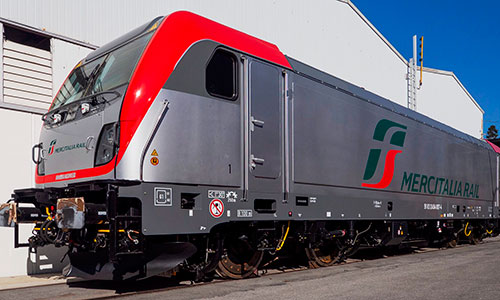Sustainable mobility in the freight sector
Mercitalia Logistics takes part in MercinTreno 2019, reaffirming the FS Group’s commitment to green transport

In order to be increasingly sustainable, a fundamental objective of the FS Italiane Group is to include the freight sector in with transport. On Wednesday, 30 October, the 11th edition of the MercinTreno Forum took place in Rome, with the FS Italiane Group company of Mercitalia Logistics taking part.
Amongst the examples of projects financed by the FS Group, the most recent is that of electric locomotives. Indeed, in March 2019, Mercitalia Rail received the first of the 40 new TRAXX E494 electric locomotives, manufactured by Bombardier Transportation. The contract envisages the delivery of five locomotives per month for an investment of approximately 180 million euro. Thanks to self-regenerative braking systems and the innovative “Ecomode” system, these locomotives will have significantly lower energy consumption than current standards.
MercinTreno 2019 was the opportunity to take stock of the freight transport situation, highlighting the need to embark on the road towards green mobility also in this sector. A day full of speeches: about twenty rapporteurs addressed the issues, proposing improvements in line with European policies aimed at reducing emissions.
Advantages of rail transport
Rail transport in particular can make a major contribution on the path towards increasingly sustainable mobility. It is one of the most efficient transport systems in terms of energy and climate-altering emissions.
In view of share of traffic, people and freight, which in Europe stands at around 9%, carbon dioxide emissions from rail transport amount only to 2.9% of total mobility emissions. What’s more, the CO2 emissions of a traveller catching the train in Italy average 75% less than what would have been emitted if they had travelled by plane and 60% less than would have been issued if they had travelled by car.
Transport via electrified rail (with the Italian network being more than 70% electrified) can also benefit from an electric mix that employs increasingly renewable sources (now already more than 30%) at a national level. Rail is thus an essential part of improving the transport sector and the quality of life in general.